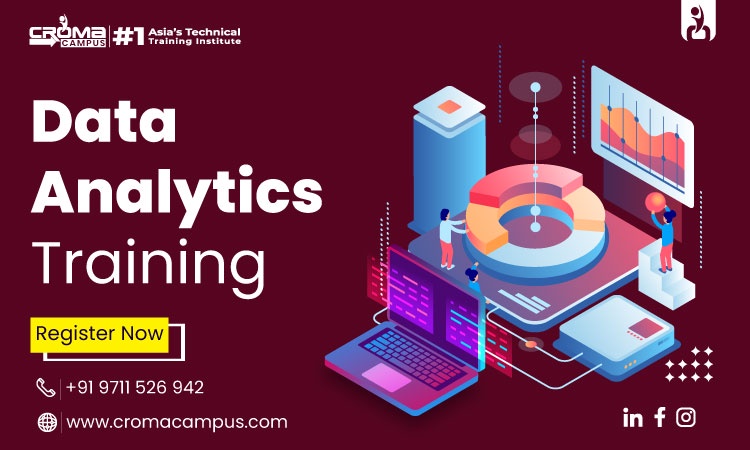Introduction
Data Analytics is the process of collecting, processing and analysing large sets of data to discover patterns, correlations, and other useful information. The goal of data analytics is to use these insights to make informed business decisions, identify opportunities for improvement, and gain a competitive edge in the market. Well, Data Analytics Online Course comprise involving a range of techniques, including statistical analysis, data mining, machine learning, and artificial intelligence, among others. The insights gained from data analytics can be used to optimize business operations, improve customer experiences, and drive innovation.
Let’s now proceed further, and have a look at the different types of Data Analytics.
Different types of Data Analytics
- Descriptive Analytics: This sort of analytics focuses on summarizing historical data to provide insights into what has happened in the past. Descriptive analytics includes methods such as data visualization, reporting, and dashboarding.
- Diagnostic Analytics: Moreover, this sort of analytics is extensively utilized to analyze why something happened in the past. Diagnostic analytics involves analyzing historical data to identify patterns and relationships and to determine the root causes of certain outcomes.
- Predictive Analytics: In fact, it is also used to make predictions about future events or behaviors. Predictive analytics involves applying statistical models and machine learning algorithms to historical data to identify patterns and make predictions.
- Prescriptive Analytics: This type of analytics offers recommendations for actions to take based on the insights gained from descriptive, diagnostic, and predictive analytics. Prescriptive analytics involves using algorithms to determine the best course of action based on the available data.
- Real-time Analytics: Moreover, it also focuses on analysing data as it is generated in real-time. Real-time analytics is often used in industries such as finance, healthcare, and telecommunications to make quick decisions based on rapidly changing data.
What will be the future of Data Analytics?
The future of Data Analytics is likely to be shaped by technological advancements, increased demand for insights-driven decision-making, and the availability of larger and more complex data sets.
Here are some potential developments that will eventually shape the future of data analytics:
- Increased Automation: As machine learning and AI technologies continue to improve, data analytics is likely to become more automated, allowing for faster and more accurate analysis of large data sets.
- Greater Focus on Privacy and Security: As the amount of data being collected and analyzed grows, there will be an increased focus on ensuring the privacy and security of that data, which may lead to the development of new technologies and practices for data management.
- Integration with Cloud Computing: Cloud computing has already made it easier to store and access large amounts of data, and in the future, data analytics will likely be increasingly integrated with cloud-based services.
- Increased Collaboration: As data analytics becomes more integral to decision-making in various industries, there may be increased collaboration between data scientists, business analysts, and other stakeholders to ensure that insights are effectively communicated and acted upon.
- Greater Emphasis on Predictive Analytics: With the increased availability of data, there will be a greater emphasis on predictive analytics to anticipate future trends and outcomes, allowing businesses and other organizations to stay ahead of the curve.
Conclusion
Well, Data Analytics is an increasingly important field that is poised for significant growth in the coming years. As businesses and organizations generate more and more data, the need for insights-driven decision-making will only increase. With the help of advanced technologies like machine learning and AI, data analytics is becoming more powerful and more automated, allowing for faster and more accurate analysis of large data sets. Additionally, as the importance of data privacy and security grows, there will likely be a greater emphasis on ensuring that data is handled responsibly and ethically. The future of data analytics is bright, and those who can master this field will be well-positioned to succeed in a rapidly evolving business landscape. So, if you genuinely dream of turning into a knowledgeable Data Analyst, enrolling in the Data Analytics Training in Delhi will be a suitable option for you in numerous ways.


No comments yet